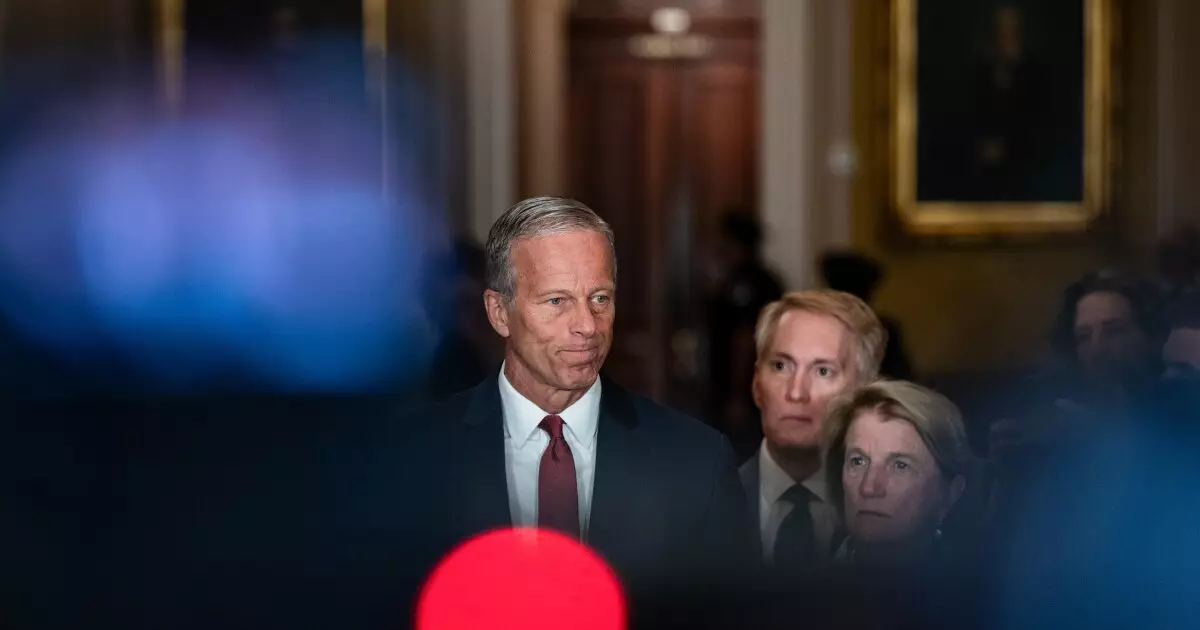In an age when healthcare inequities are glaring and deeply entrenched, the Senate Republicans’ proposal for a $15 billion relief fund to stabilize rural hospitals amidst impending Medicaid cuts isn’t just a fiscal maneuver; it’s a moral obligation. The stark reality is that many rural communities are on the brink of losing essential healthcare services, and this fund is an urgent lifeline. While it might be tempting to dismiss this move as political posturing, particularly given the uncertainty surrounding this legislation, the implications for our rural healthcare system are deeply concerning.
The states most adversely affected—North Carolina, Iowa, Oklahoma, Missouri, and Kentucky—represent a troubling portrait of neglect where millions depend on these hospitals for vital services. In Kentucky alone, the projected loss of $4 billion in Medicaid coverage over the next decade speaks volumes about how budget cuts in the name of fiscal conservatism can lead to human suffering. It is a travesty that in a country as wealthy as the United States, nearly half of rural hospitals are operating at a loss, a statistic that underscores the need for immediate intervention.
The Political Quagmire: Byrd Rule Implications
However, to navigate this political minefield, Senate Republicans are not only counting on financial appropriations but are also wading through the murky waters of Senate rules. The Byrd Rule’s implications mean that any budgetary measures enacted must adhere strictly to spending and tax policy, leaving political logjams at play. The Senate parliamentarian’s decision to strike major cost-saving provisions further complicates matters, essentially requiring a supermajority for any serious reforms.
Senate Majority Leader John Thune’s commitment to work within the constraints of the parliamentarian is prudent but also highlights a frustrating aspect of contemporary governance. The refusal to override the parliamentarian’s rulings may be strategically sound in the short term, but it demonstrates a troubling passivity in the face of urgent healthcare needs. This approach, while ostensibly aimed at securing a bill, feels like a missed opportunity to adopt a bolder stance that prioritizes citizens’ welfare over procedural formalities.
A Market in Distress
Widespread anxiety within the municipal bond market regarding the ramifications of proposed Medicaid cuts serves as a stark reminder of the interconnectedness of healthcare and economics. The implications of lowering allowable provider tax rates—from 6% to 3.5% in the coming years—hold disastrous potential for state-funded Medicaid programs. Markets thrive on stability, and uncertainty surrounding these cuts has led to an uptick in yields, reflecting investor fears of an impending crisis within rural healthcare infrastructure.
The political timing of this impending legislation, set against the ambitious July 4 deadline for resolution, raises eyebrows. As party leaders scramble to garner support, one must question how genuine the efforts are to ensure the health of rural hospitals. Will concessions made in the name of compromise truly benefit underserved communities, or merely serve the interests of political longevity?
The Case for Pragmatism and Bold Vision
While the proposed fund aims to distribute resources on a needs basis—considering factors such as rural population and poverty levels—it still begs a larger question: will it be enough? The model of simply redistributing available funds without considering the systemic issues plaguing rural healthcare delivery feels like a band-aid on a festering wound. As it stands, nearly half of rural hospitals are already in financial distress. Simply stabilizing current funding isn’t a long-term solution—it’s a short-term fix to a deeply-rooted problem.
A truly ambitious reform would involve rethinking how healthcare is delivered in these areas, including incentives for healthcare providers, telehealth expansion, and fostering community health networks. The current legislative procrastination and reactionary measures merely reflect a hesitance to confront these big-picture challenges, which require courageous leadership and innovative thinking.
In this critical moment, garnering political will to support our rural healthcare system entails more than just fiscal responsibility; it demands a commitment to the people who rely on these services every single day. The political negotiations must translate these daunting numbers into actual lives saved and communities preserved. This is a challenge that transcends party lines and expectations—one that demands action now, not later.

